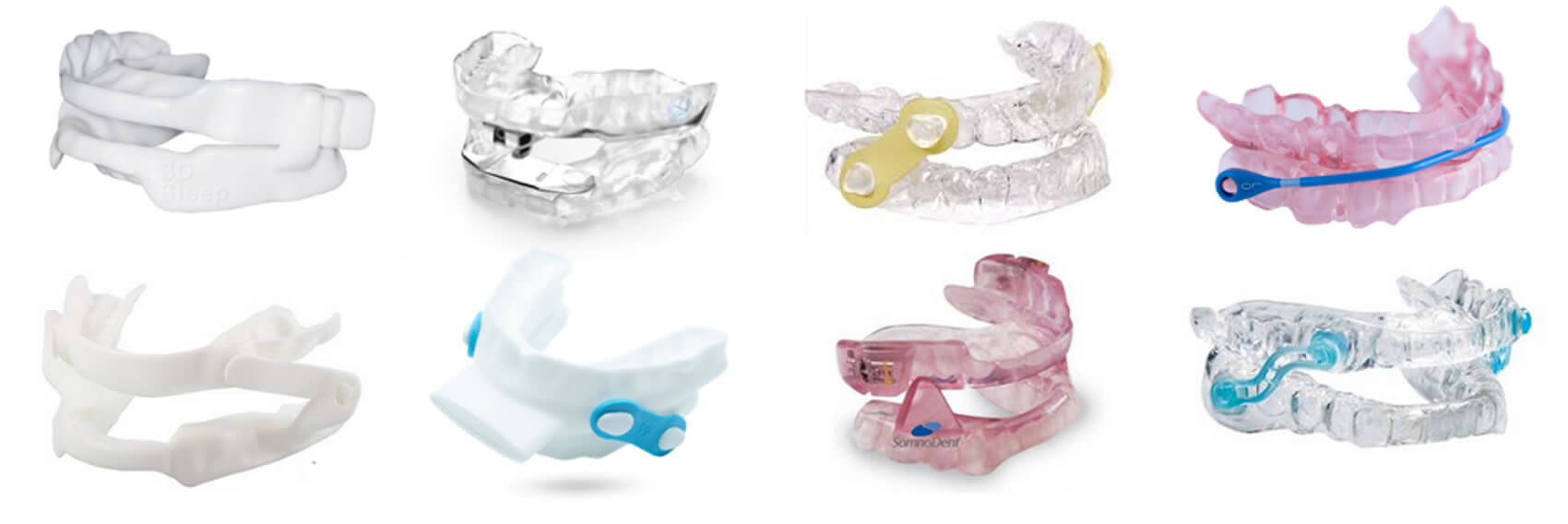Sleep apnea is a potentially serious sleep disorder in which breathing repeatedly stops and starts. If you snore loudly and feel tired, even after a full night’s sleep, you may have sleep apnea.
SLEEP
APNEA
WHAT IS SLEEP APNEA?
WHAT ARE THE EFFECTS?
This roller coaster sleep pattern can leads to a loss of energy, concentration, productivity and even an inability to stay awake during less active tasks. A person with Obstructive Sleep Apnea will partially awaken leading to fragmented, non-refreshing sleep which can be the cause of excessive daytime sleepiness. The lack of breathing also causes the oxygen level in the blood stream to fall, leading to multiple medical problems.
WHAT ARE THE SYMPTOMS OF SLEEP APNEA?
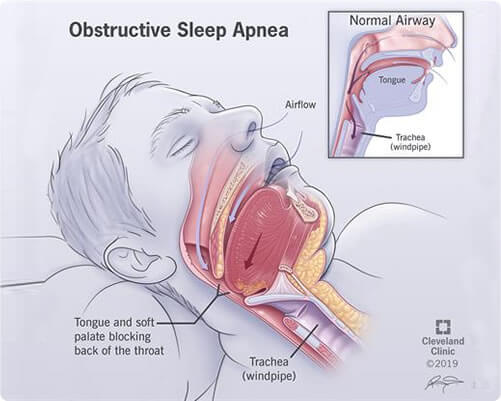
WHAT ARE THE SYMPTOMS OF SLEEP APNEA?
- Loud snoring
- Choking and gasping
during sleep - Memory loss
- Daytime sleepiness
- Depression
- Drowsy driving
- Hypertension
- Medical diseases
associated with sleep apnea - High blood pressure
- Stroke
- Erectile dysfunction
- Coronary heart disease
DO I HAVE SLEEP APNEA?
How will you know if you have Obstructive Sleep Apnea? We base your diagnosis on the results of an overnight sleep study, called a Polysomnogram (PSG) as well as patient evaluation and history.
TREATMENT OPTIONS
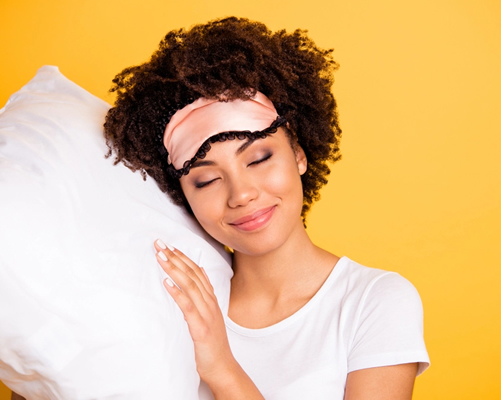
Good sleep hygiene (it’s best not to sleep on your back), weight loss if necessary, and regular exercise are some helpful OSA treatments patients can practice on their own. Medical and dental treatments include Continuous Positive Airway Pressure (CPAP), Oral Appliance Therapy (OAT), and surgery.

CONTINUOUS POSITIVE
AIRWAYS PRESSURE
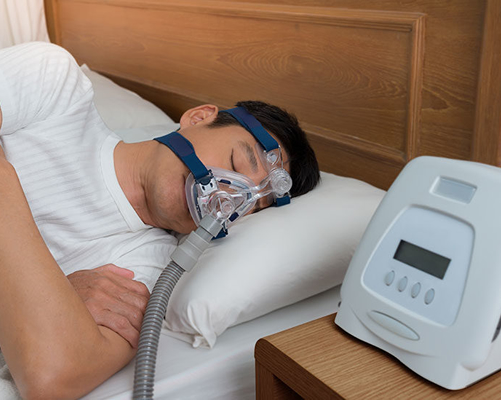
CONTINUOUS POSITIVE
AIRWAYS PRESSURE
This is pressurized air generated from a bedside machine like a ventilator. Air is delivered through a mask, covering the nose. The force of the pressurized air pushes the airway open.
Although CPAP therapy is effective, some people are unable to adhere to it or simply prefer another option. Your doctor should consider giving you a prescription for a sleep apnea appliance if you are unable to tolerate CPAP therapy or prefer an alternate treatment. Many people like an oral appliance because it is comfortable, quiet, portable and easy to wear. In some severe cases of sleep apnea, upper airway surgery may be another treatment option.
ORAL APPLIANCE THERAPY
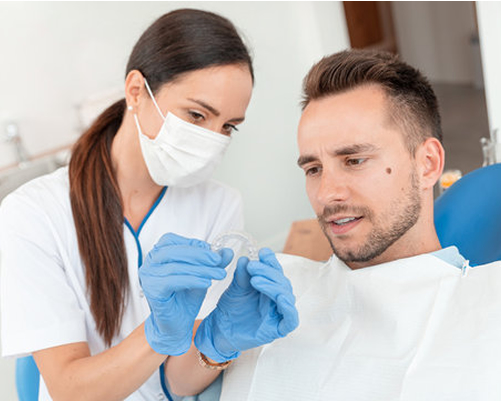
Oral appliances can be worn in the mouth to treat snoring and OSA. These devices are similar to orthodontic retainers or sports mouth guards. Oral Appliance Therapy involves the selection, design, fitting and use of a custom-designed oral appliance worn during sleep. This appliance then attempts to maintain an opened, unobstructed airway in the throat.
Oral appliances work by repositioning the lower jaw, tongue, soft palate and uvula, stabilizing the lower jaw and tongue and increasing the muscle tone of the tongue.

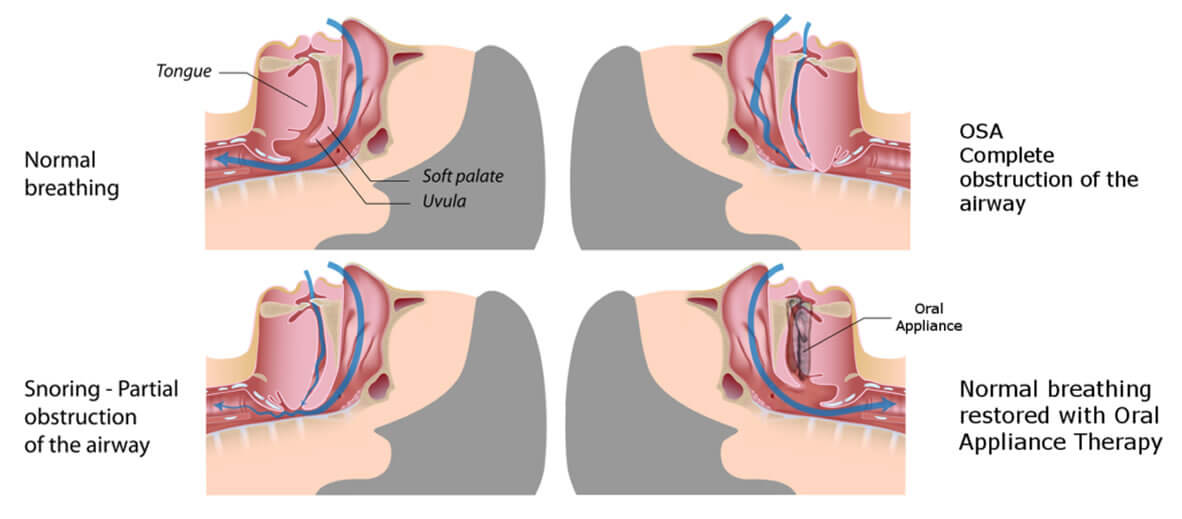
The quality of your sleep has a dramatic impact on your health, well-being and overall quality of life. Snoring and obstructive sleep apnea disrupt your sleep and increase your risk of severe health problems. Our team at Bedford Dental Care will guide you through the process of treating your sleep apnea in order to bring your healthy and well-being to the best level possible.
Give us a call today to get screened for Sleep Apnea and get on your way to a better more enjoyable life!

